#Luis Alberni
Photo

Easy Living (Mitchell Leisen, 1937)
#Easy Living#Mitchell Leisen#quote#Jean Arthur#comedy#1937#screwball comedy#screwball#Luis Alberni#black and white
336 notes
·
View notes
Text
Easy Living (1937)
#easy living#jean arthur#luis alberni#1937#screwball comedy#mitchell leisen#video#1930s film#30s movies#romantic comedy#movie scenes#b&w#exercise equipment#set design#movie sets
9 notes
·
View notes
Text

Films Watched in 2024:
49. Easy Living (1937) - Dir. Mitchell Leisen
#Easy Living#Mitchell Leisen#Jean Arthur#Edward Arnold#Ray Milland#Luis Alberni#Mary Nash#Films Watched in 2024#My Post
3 notes
·
View notes
Text
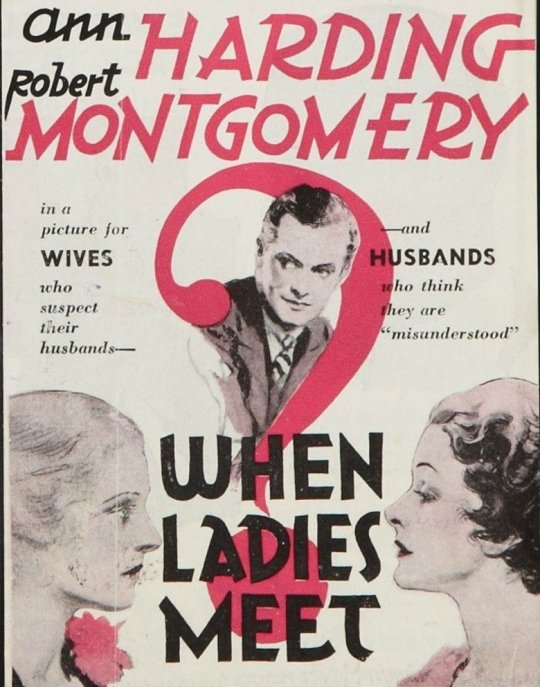
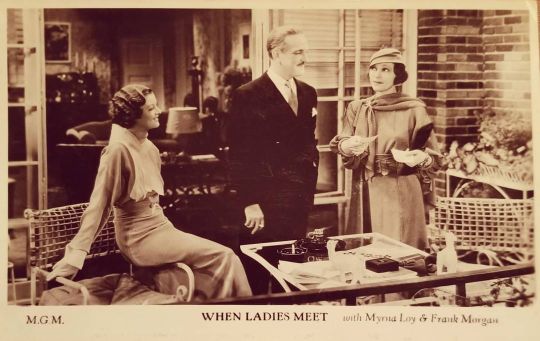
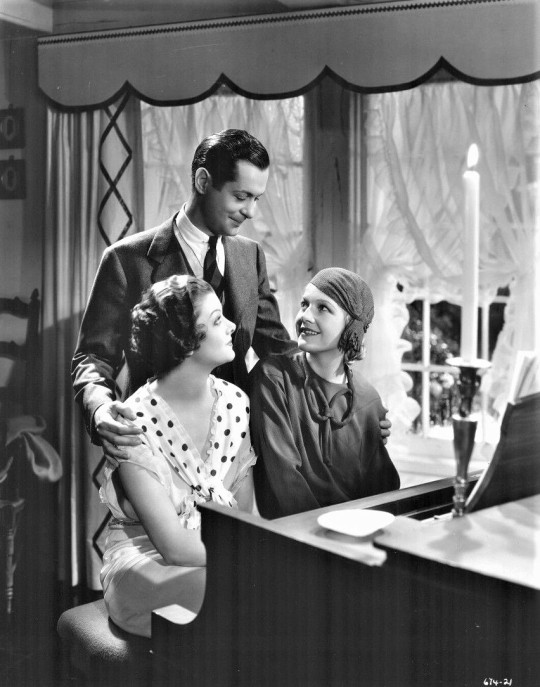
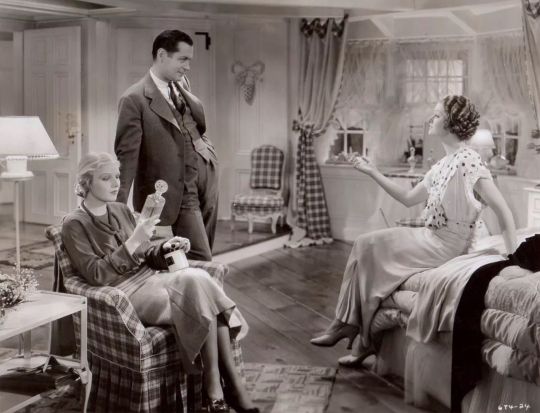
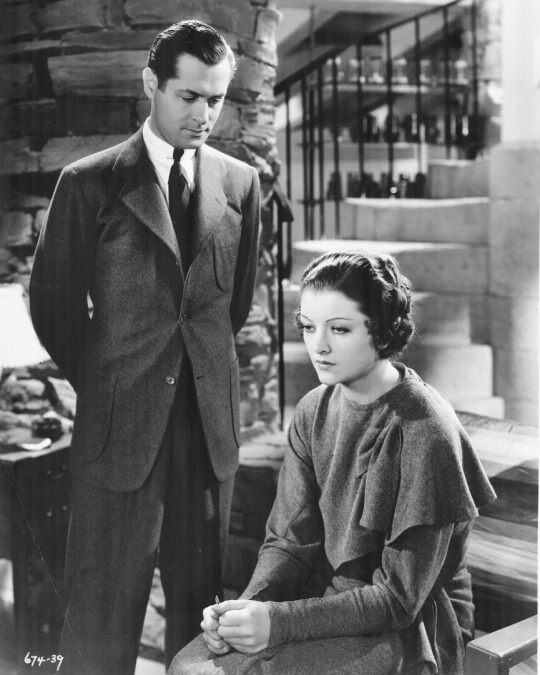
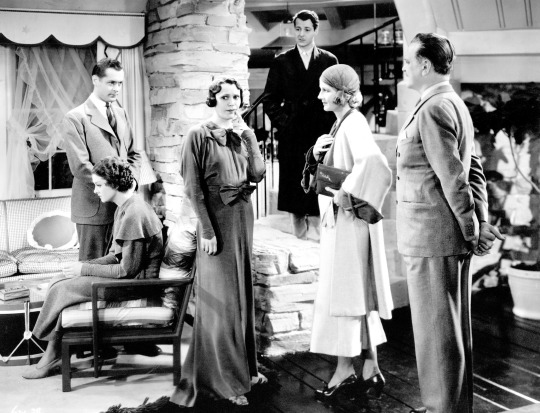
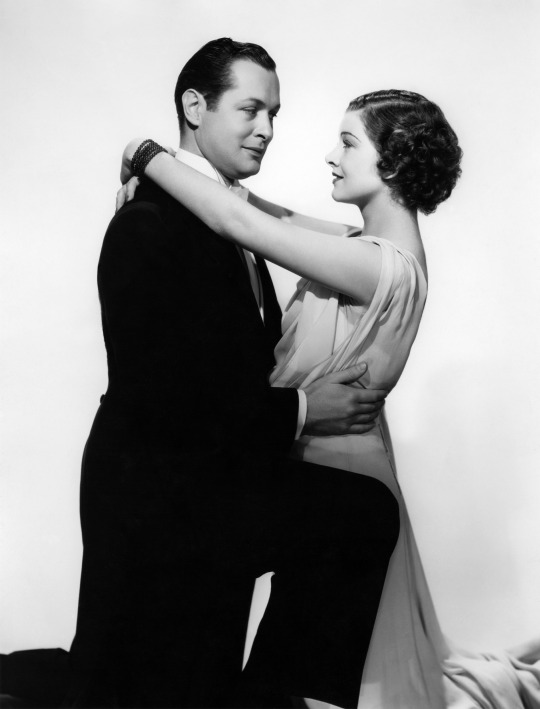
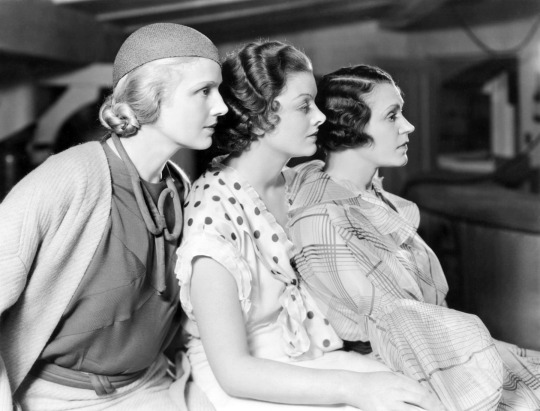
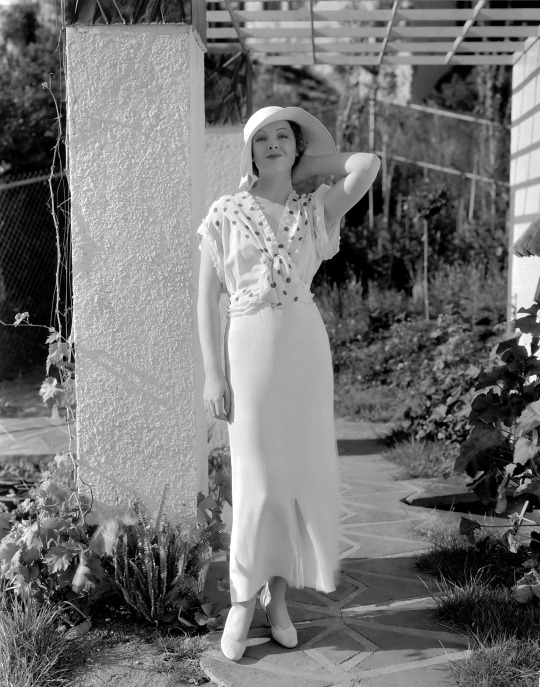
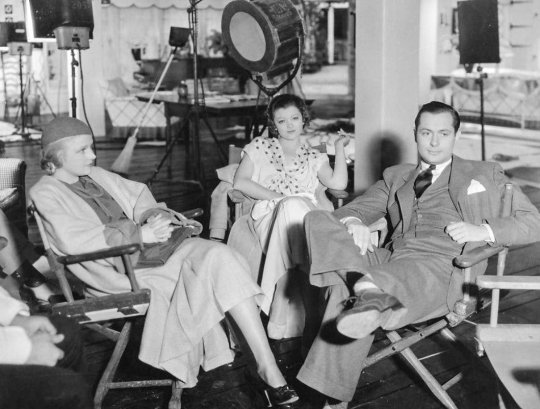
When Ladies Meet (1933) Harry Beaumont
April 3rd 2024
#when ladies meet#1933#harry beaumont#ann harding#robert montgomery#myrna loy#alice brady#frank morgan#martin burton#luis alberni#pre-code#PreCodeApril
3 notes
·
View notes
Photo
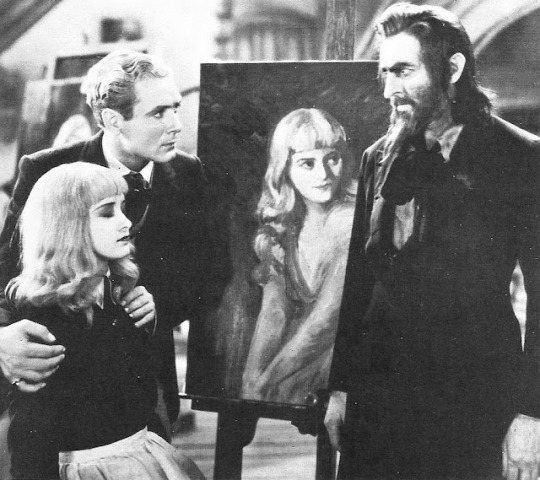
Marian Marsh, Bramwell Fletcher, and John Barrymore in Svengali (Archie Mayo, 1931)
Cast: John Barrymore, Marian Marsh, Donald Crisp, Bramwell Fletcher, Carmel Myers, Luis Alberni, Lumsden Hare, Paul Porcasi. Screenplay: J. Grubb Alexander, based on a novel by George L. Du Maurier. Cinematography: Barney McGill. Art direction: Anton Grot. Film editing: William Holmes. Music: David Mendoza.
George Du Maurier's 1894 novel was called Trilby, as were many of the stage adaptations and early silent film versions. But if you cast John Barrymore as the sinister hypnotist, you almost have to call your film Svengali. It's one of Barrymore's juiciest movie performances, but it surprisingly didn't earn him an Oscar nomination -- an honor he never received. To add to the irony, the best actor Oscar that year went to his brother Lionel for A Free Soul (Clarence Brown, 1931), and one of the actors who did receive a nomination was Fredric March for playing Tony Cavendish, an obvious caricature of John Barrymore, in The Royal Family of Broadway (George Cukor and Cyril Gardner, 1930). Though Barrymore's Svengali doesn't particularly deserve an award, it's the best thing about the film aside from the sets by Anton Grot that were influenced by German expressionism and did earn Grot a nomination, as did cinematographer Barney McGill's filming of them. Like many early talkies, Svengali is slackly paced, as if director Archie Mayo, who learned his craft in the silent era, was still slowing things down so title cards could be placed at the appropriate intervals. It also has some problems of tone: Svengali is not quite the sinister monster you expect him to be from his reputation as an archetype of masterful control. In the beginning he's the butt of horseplay from some of his fellow Paris bohemians, the painters known as The Laird (Donald Crisp) and Taffy (Lumsden Hare), who decide he doesn't bathe often enough and dump him into a bathtub. We know his potential for evil after he causes Madame Honori (Carmel Myers) to commit suicide, but even her character is played for comedy before her untimely end. In this adaptation, by J. Grubb Alexander, the plot revolves around Svengali's manipulation of Trilby (Marian Marsh), an artist's model whose potential as a singer -- even though she can't quite carry a tune -- he deduces from the shape of her mouth. He uses his hypnotic powers to turn her into a diva, though the one performance we see from her, a bit of the Mad Scene from Lucia di Lammermoor, doesn't merit the ovation it receives -- perhaps he hypnotized the audience, too. But control of Trilby comes at a cost: Svengali's health begins to decline, and Trilby's career along with it, until at the end they both die as she performs in a nightclub in Cairo, second-billed to a troupe of belly-dancers. Only the lovestruck young artist known as "Little Billee" (Bramwell Fletcher), who has devoted his life to tracking Trilby in hopes of winning her back, is there to witness her end. Thanks to Barrymore, and some good support from character actors like Luis Alberni, who plays Svengali's assistant with the improbable name Gecko, Svengali is never unwatchable, and it mostly avoids the antisemitic notes that many have observed in the character, who is said to have mysterious origins, perhaps in Poland, in the novel and its adaptations.
8 notes
·
View notes
Text

14 notes
·
View notes
Photo

4 notes
·
View notes
Text
Luis Alberni: A Spaniard in the Works
Luis Alberni: A Spaniard in the Works
Luis Alberni (1886-1962) was a much beloved Hollywood character actor for decades. Though often cast as comical Italians, and his surname sure sounds Italian, he was actually Spanish. Alberni was the son of a judge, and he actually possessed a law degree, but he was more drawn to the stage, working in stock companies and in circuses (as a clown) for years, before finally moving to the States in…

View On WordPress
3 notes
·
View notes
Text
Here are 10 things you should know about Luis Alberni, born 135 years ago today. The Spanish-born character actor was a go-to in Hollywood for a wide range of ethnic characters.
#Luis Alberni#old movies#classic film#classic movies#classic Hollywood#Golden Age of Hollywood#precode#precode movies#pre-code#pre-code movies#classic Broadway
0 notes
Photo

Bad movie I have Svengali 1931
#Svengali#John Barrymore#Marian Marsh#Donald Crisp#Bramwell Fletcher#Carmel Myers#Luis Alberni#Lumsden Hare#Paul Porcasi#Ferike Boros#Adrienne D'Ambricourt#Yola d'Avril#Rose Dione#Julia Griffith#Henry Otto#Ellinor Vanderveer#Warner Bros.
1 note
·
View note
Photo










Easy Living (Mitchell Leisen, 1937)
#films watched in 2023#Easy Living#Mitchell Leisen#Preston Sturges#siete#1937#black and white#animals#dogs#screwball#screwball comedy#Jean Arthur#Edward Arnold#Ray Milland#Luis Alberni#love#comedy#dramedy#telephone#newspaper#bathtub#taxi#hat#hats#fashion#poverty#money
131 notes
·
View notes
Text
















Jean Arthur in Easy Living (1937)
#easy living#jean arthur#ray milland#luis alberni#mitchell leisen#screwball comedy#1930s film#30s movies#1937#comedy#romantic comedy#b&w#dogs#animals
8 notes
·
View notes
Photo


Films Watched in 2022:
24. Topaze (1933) - Dir. Harry d’Abbadie d’Arrast
#Topaze#Harry d'Abbadie d'Arrast#John Barrymore#Myrna Loy#Reginald Mason#Jobyna Howland#Jackie Searl#Luis Alberni#Films Watched in 2022#My Edits#My Post
8 notes
·
View notes
Photo

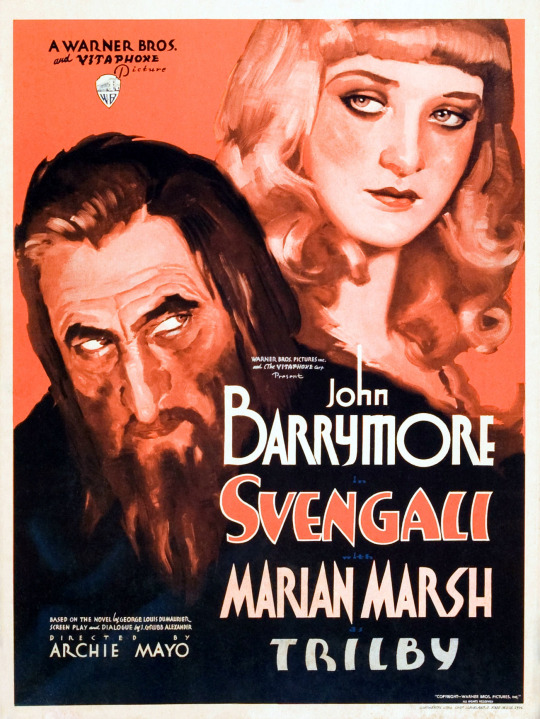
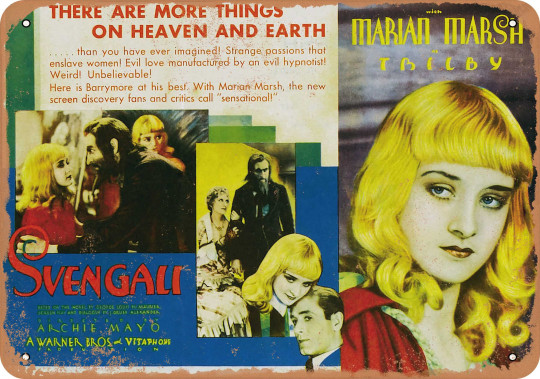
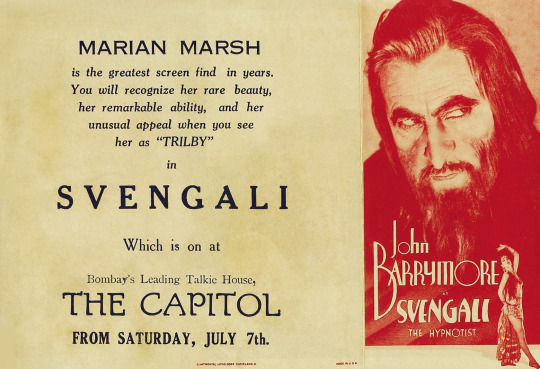
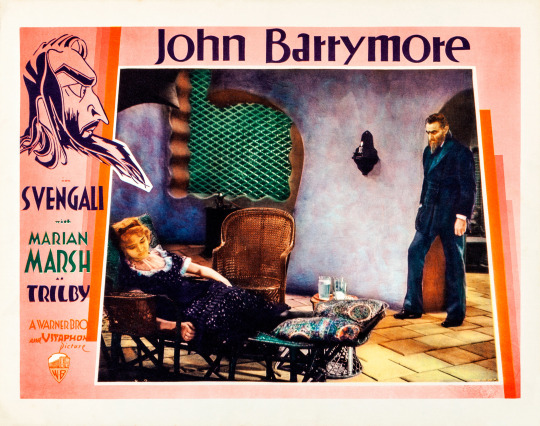
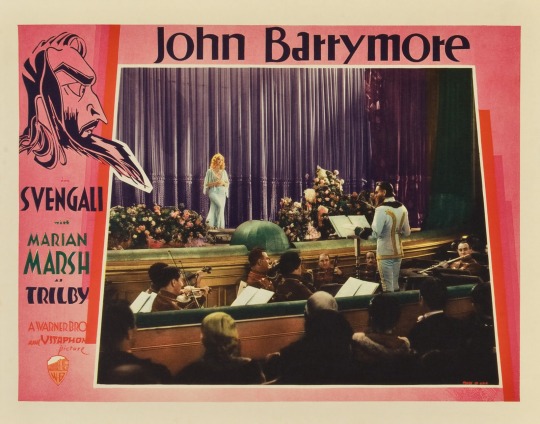
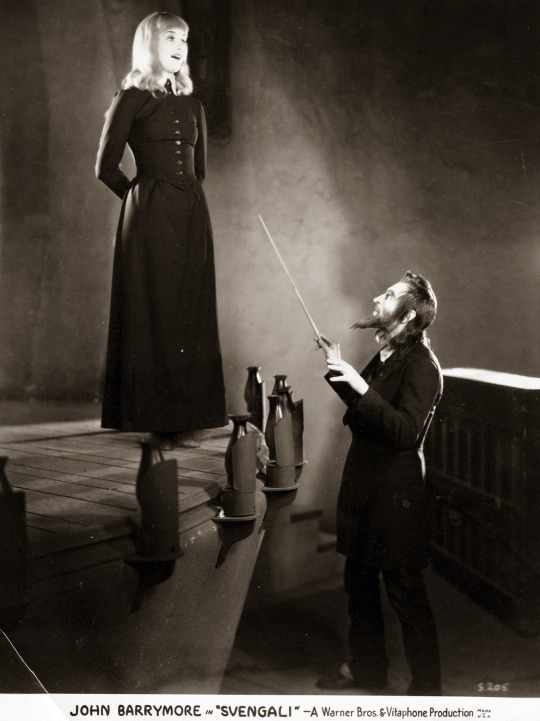
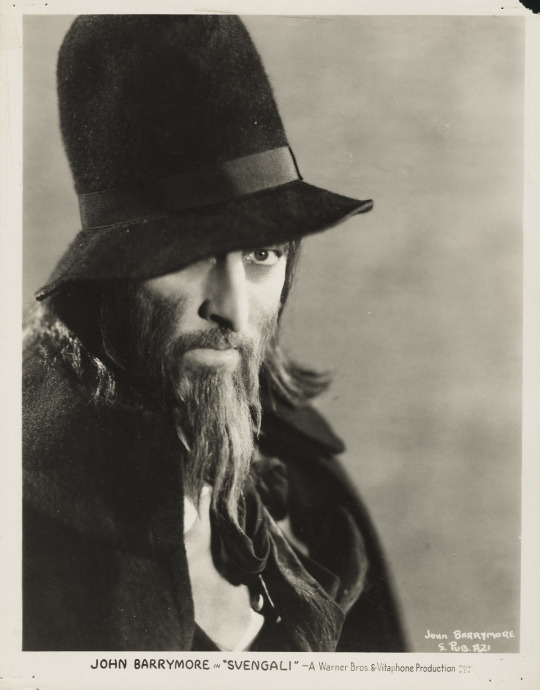

Svengali (1931) Archie Mayo
October 8th 2022
#svengali#1931#archie mayo#john barrymore#marian marsh#bramwell fletcher#luis alberni#donald crisp#lumsden hare#paul porcasi#carmel myers#pre-code
19 notes
·
View notes
Photo

Jean Arthur in Easy Living (Mitchell Leisen, 1937)
Cast: Jean Arthur, Edward Arnold, Ray Milland, Luis Alberni, Mary Nash, Franklin Pangborn, Barlowe Borland, William Demarest, Andrew Tombes, Esther Dale. Screenplay: Preston Sturges, based on a story by Vera Caspary. Cinematography: Ted Tetzlaff. Art direction: Hans Dreier, Ernst Fegté. Film editing: Doane Harrison.
Classic screwball comedies like Easy Living take our anxieties about money and love and work, like Mary Smith (Jean Arthur) worrying about how she's going to pay the rent and even eat now that she's lost her job, and transform them into dilemmas with comic resolutions. Too bad life isn't like that, we say, but with maybe a kind of glimmer of hope that it will turn out that way after all. Easy Living, with its screenplay by Preston Sturges, is not only one of the funniest screwball comedies, but it's also, under Mitchell Leisen's direction, one of the most hilarious slapstick comedies. How can you not love a film in which a Wall Street fat cat (Edward Arnold) falls downstairs? Or the celebrated scene in which the little doors in the Automat go haywire, producing food-fight chaos that builds and builds? The fall of the fat cat and the run on the Automat reveal that Easy Living was a product of the Depression, anxiety made pervasive and world-wide, when we needed hope in the form of comic nonsense to keep us going. This is also an essential Preston Sturges movie, for although he didn't direct it, his hand is evident throughout, not only in the dialogue but also in the casting, with character actors who would later form part of Sturges's stock company, Franklin Pangborn, William Demarest, and Robert Greig among them. Ray Milland displays a Cary Grant-like glint of amusement at what's going on, Luis Alberni spouts Sturges's wonderful malapropisms as the hotel owner Louis Louis, and Mary Nash brings the right amount of indignation and humor to her role as Arnold's wife.
0 notes
Photo

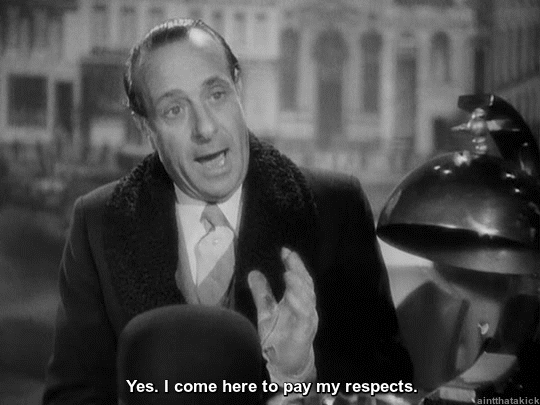
- Well, Mr. B., the bonds are due today, so here I am. Johnny-on-the-spots! - That's fine. But you don't have to bother me. Go downstairs to the window marked "Loans". The big window.
#edward arnold#luis alberni#easy living#1937#**myedits:gif**#**edwardarnold#**luisalberni#**easyliving#1930s#gif warning
36 notes
·
View notes